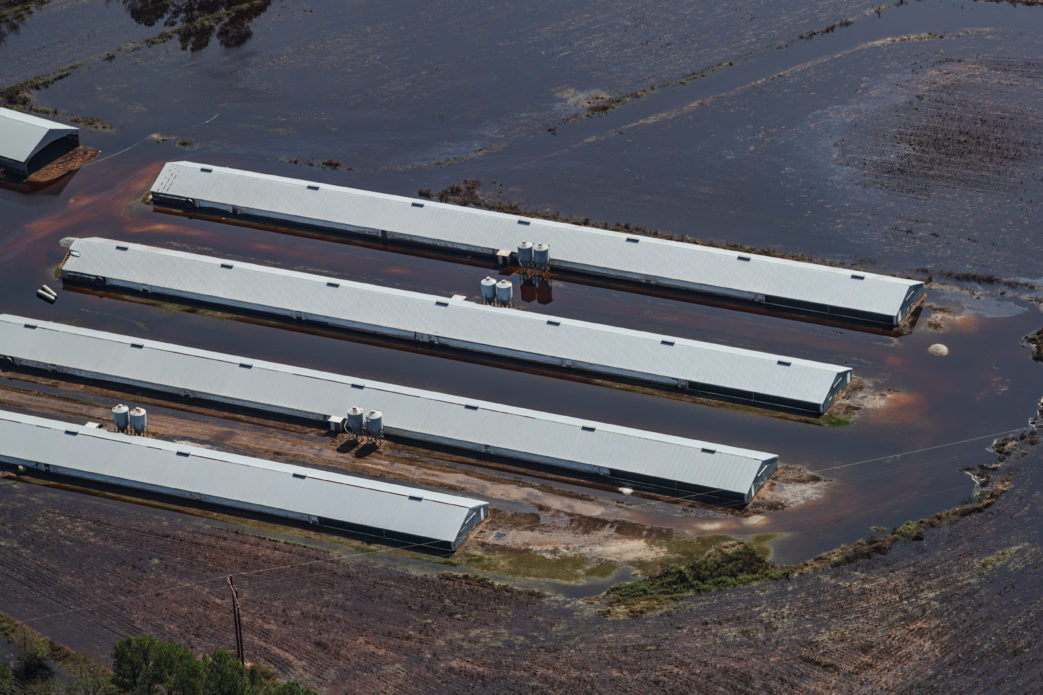Over a month after Hurricane Florence hit North Carolina, decimating factory farms where millions of animals were left to die and untreated waste lagoons spilled into waterways, the state continues to suffer. The cause of this suffering, of course, is not just September’s natural disaster–but the huge amount of wasteful and toxic animal agriculture in North Carolina in its path. Now, North Carolina must find a way to dispose of the bodies of over 4 million deceased farm animals.
As a powerful Compassion Over Killing investigation reveals, Florence hit factory farms along the heavily populated Cape Fear watershed. Not only did this lead to millions of animal deaths–it caused toxic animal waste cesspools adjacent to the Cape Fear river to overflow and burst, spilling their contents into surrounding communities.
In addition to cleaning up waterways and submerged farms, the state must now figure out a way to dispose of the millions of deceased animals who were killed during the storm–many of whom were locked in sheds and left to drown.
To dispose of the many millions of bodies of animals left behind, the North Carolina Department of Agriculture will be given up to $20 million of FEMA funding in order to compost the bodies of pigs, chickens, and turkeys. Because of Eastern North Carolina’s high water table, they cannot be buried.
This profit-driven industry which created the problem in the first place will now be given bailout assistance instead of being forced to reform and avoid these problems in the future. As the industry continues to exploit animals and surrounding communities, taxpayer money is now going to clean up their mess.
Shortly after Florence, two millions chickens were killed in deadly Hurricane Michael.
While tragic natural disasters like these hurricanes seem unavoidable, there are measures we can take to limit their effect on the environment and surrounding communities. These storms are quickly intensifying as weather patterns change due to climate change, and those effects come full circle. Not only does animal agriculture contribute to climate change–it makes the effects of these storms even more devastating.
To reduce the amount of animal suffering, environmental devastation, and taxpayer money going towards solving these addressable problems, we can start by declaring our opposition to these dangerous industries by taking animal products off our plate. A simple daily change can make a difference and save lives! To get started, check out TryVeg.com for resources and delicious recipes.

